Utilizing the Power of AI in Digital Marketing: Trends and Strategies for 2024
Explore the power of AI in digital marketing for 2024. Discover cutting-edge trends and strategies to elevate your campaigns, boost customer engagement, and drive significant business growth. Learn how advanced AI technologies can revolutionize your marketing efforts and deliver outstanding results.
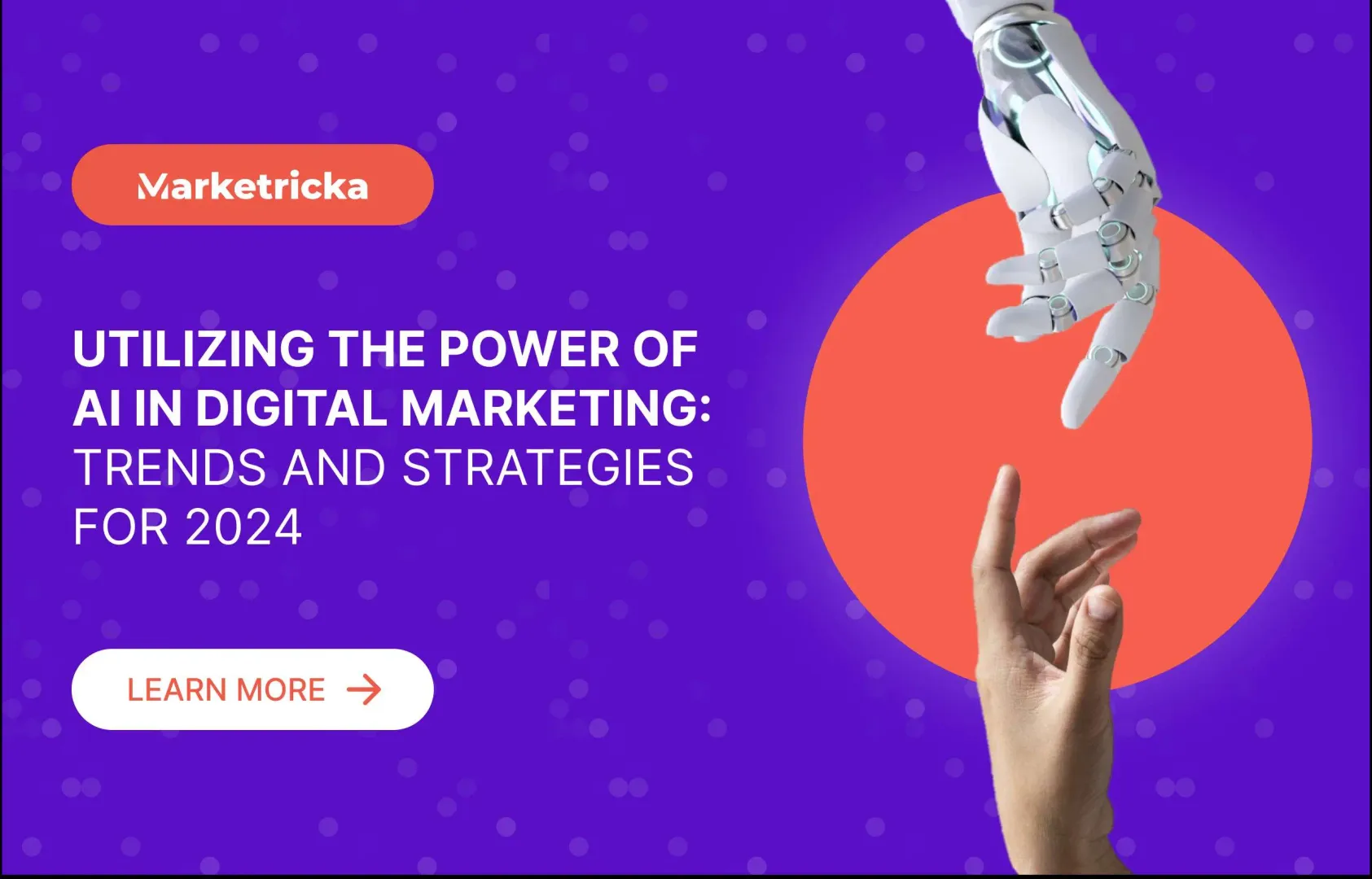
Summary :
Ever wondered how AI is transforming digital marketing? As we move into 2024, utilizing the power of Artificial Intelligence has become essential for businesses aiming to thrive in the digital landscape. AI is revolutionizing how brands connect with their target audiences, optimize marketing campaigns and boost conversions. But did you know how exactly AI achieves this? From analyzing vast amounts of data to predicting customer behavior, the power of AI in digital marketing is reshaping how strategies are developed and executed.
Understanding these advancements is crucial for staying competitive. Whether you’re new to digital marketing or have been doing it for years, knowing the latest AI trends and strategies can make a big difference. Let’s explore how AI can boost your marketing efforts, improve your online presence and help you to get better results.
Understanding AI in Digital Marketing
Artificial Intelligence (AI) is changing digital marketing by helping brands connect with people and run their campaigns more effectively. AI can quickly analyze large amounts of data, giving businesses useful insights to make better decisions. It helps personalize customer experiences and automate tasks that were once done manually. In 2024, AI is getting even more advanced with new tools and techniques, making it important for businesses to learn and use these innovations to stay ahead in the marketing game.
Importance of Staying Ahead in 2024
In today’s fast-changing digital world, staying ahead is crucial for staying competitive. As AI technology keeps advancing, old strategies might not work as well anymore. To keep your brand at the forefront, it’s important to adopt the latest AI trends and strategies. This will not only boost your marketing effectiveness but also make your brand look innovative. By staying updated on AI developments in 2024, you can adapt quickly, improve your campaigns and achieve better results. Keeping up with these changes will help you use AI to enhance your marketing and grow your business.
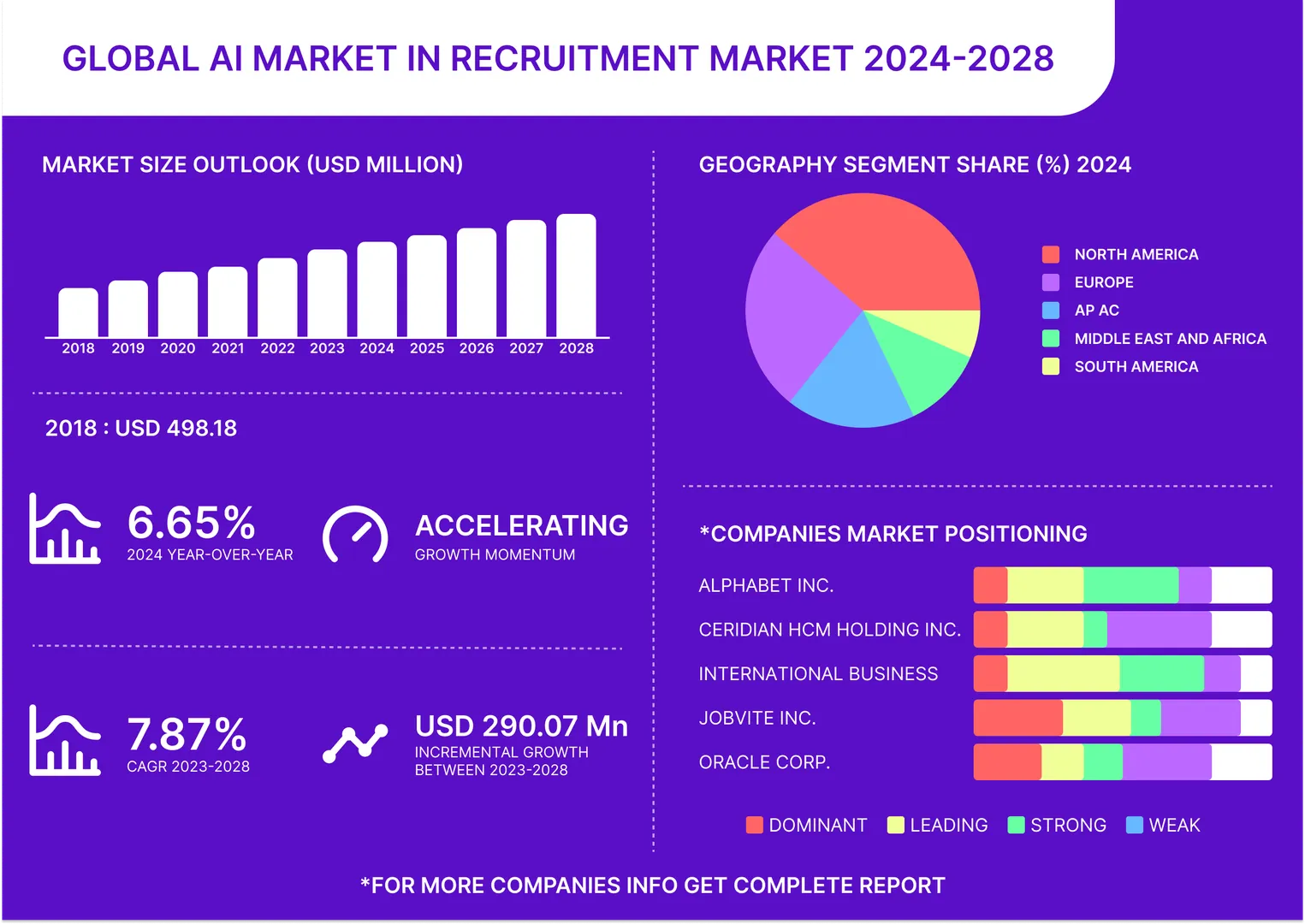
Evolution of AI in Marketing
AI has come a long way since it first started being used in marketing. At first, it was mostly used for basic tasks like sorting through data and automating email campaigns. But now, the power of AI in digital marketing is much more advanced. It can create tailored content for users, tweak marketing campaigns in real-time, and even forecast future trends thanks to improvements in machine learning and data analysis.
In the past, AI was limited to automating simple tasks. Today, with the advancements in machine learning, AI can analyze data to understand and predict customer behavior. This helps marketers make better decisions and fine-tune their strategies to be more effective.
Now, AI isn’t just about data analysis; it’s also about content creation and customer interaction. Modern AI tools can write engaging content, handle social media management, and provide instant support through chatbots. This evolution in AI technology has made marketing more efficient and impactful, showing just how crucial AI has become in the marketing field.
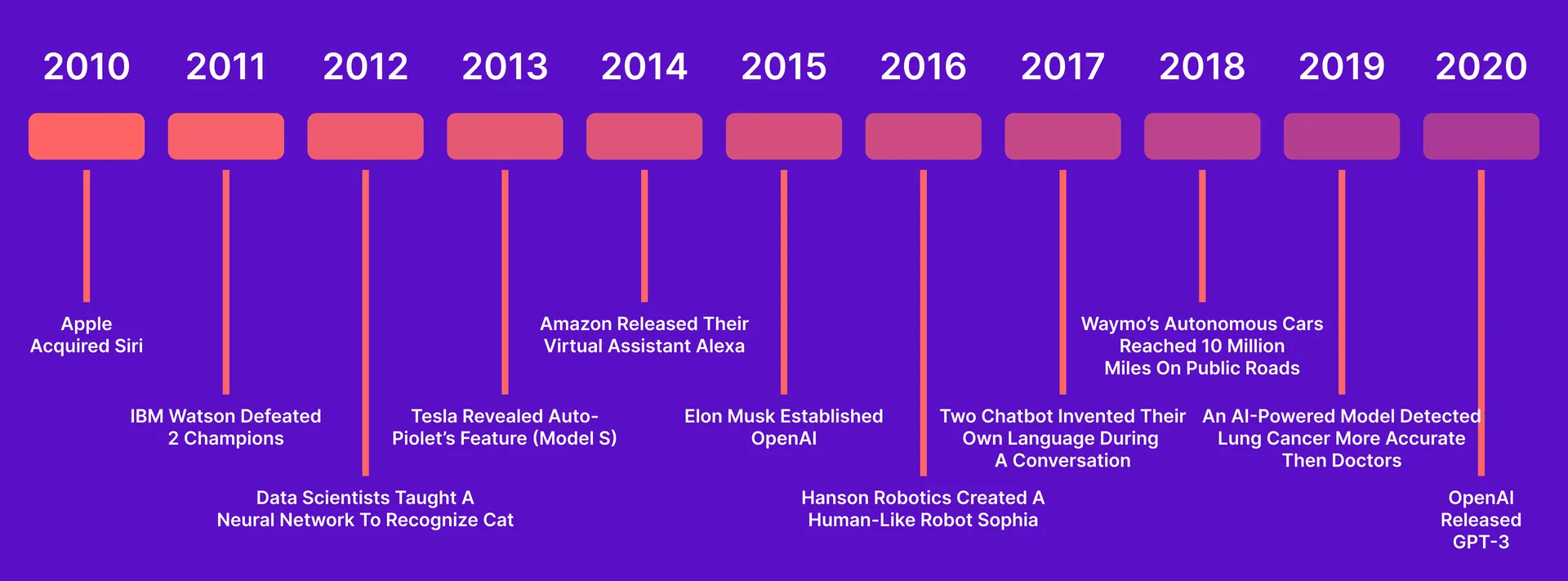
Current Trends in AI-Driven Digital Marketing
In today’s rapidly evolving digital landscape, AI is increasingly shaping how businesses approach marketing. From enhancing user experiences to optimizing content, AI technologies are driving innovation across various aspects of digital marketing. Here’s is some of the latest trends in AI-driven digital marketing:
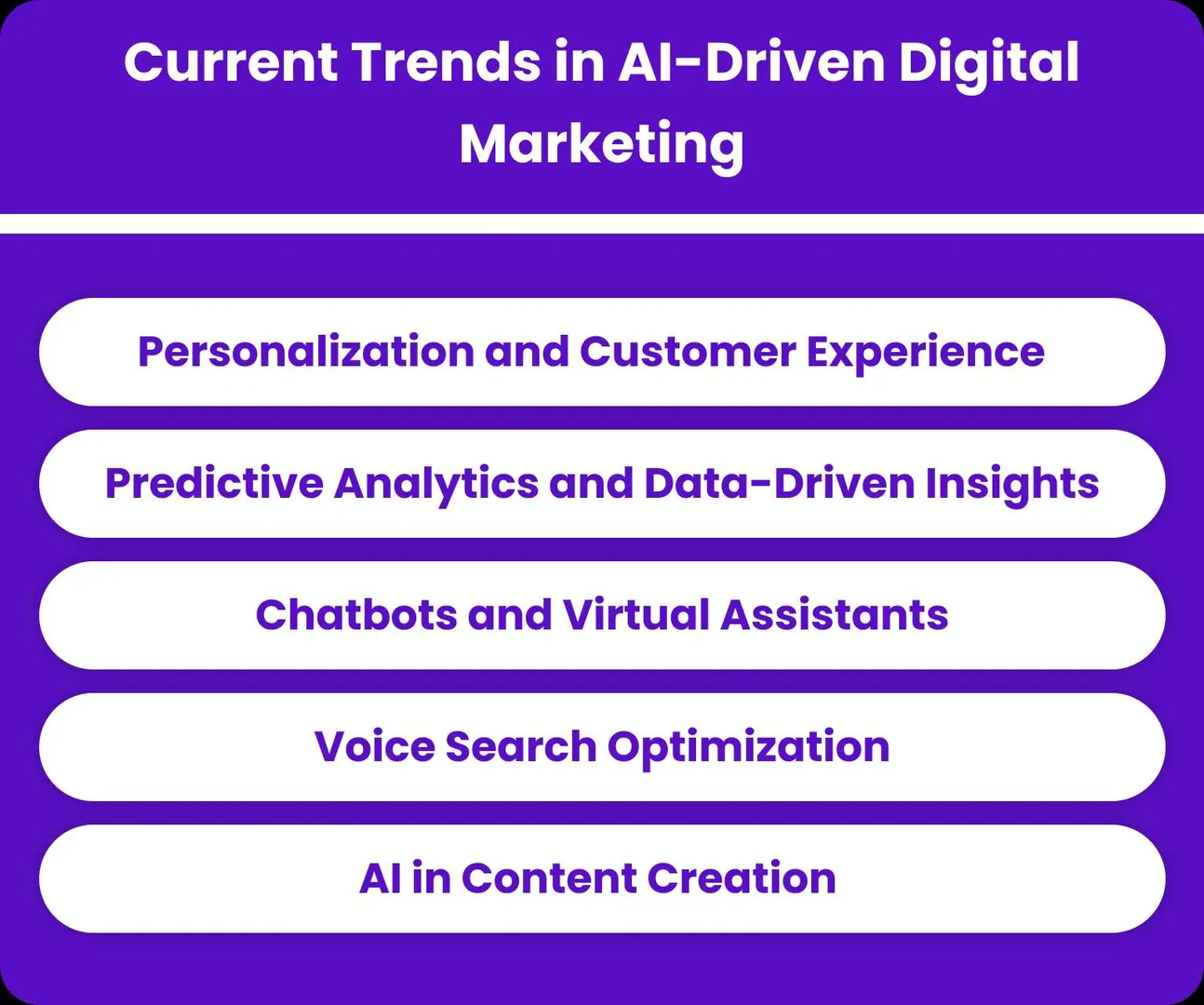
1) Personalization and Customer Experience
AI is changing the way businesses make their marketing more personal. By analyzing customer data and behavior, AI algorithms can tailor content, recommendations and advertisements to individual preferences. This kind of personalization makes the customer experience better, making interactions more relevant and interesting. For example, AI-driven email marketing can send personalized product recommendations based on past purchases, while websites can dynamically adjust content to suit the visitor’s interests, leading to higher conversion rates and customer satisfaction.
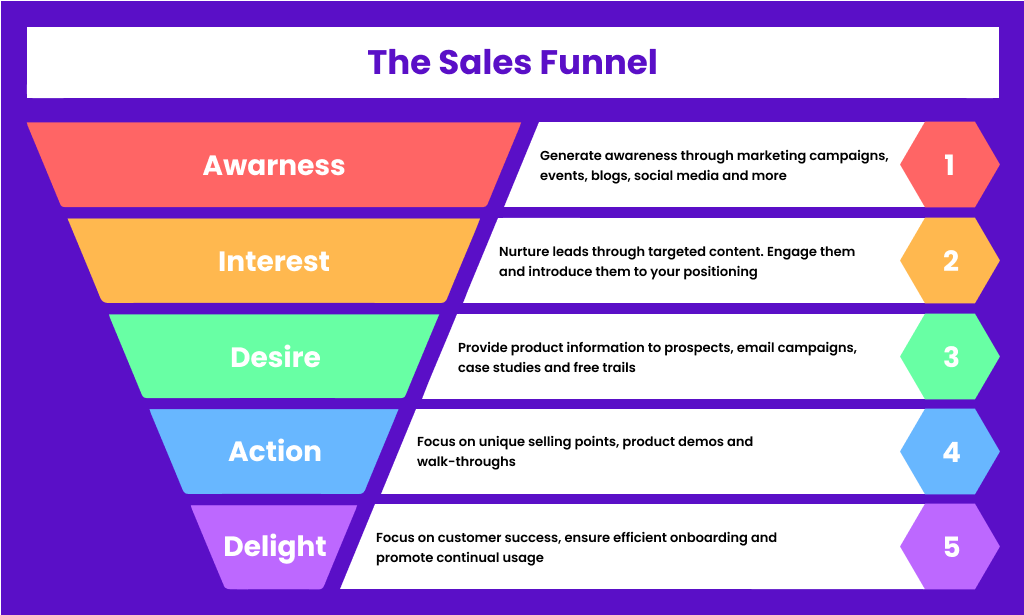
2) Predictive Analytics and Data-Driven Insights
Predictive analytics powered by AI allows marketers to forecast future trends and customer behaviors with remarkable accuracy. By processing vast amounts of data, AI can identify patterns and predict outcomes, helping businesses make informed decisions. For example, AI can predict which products are likely to sell out during a specific season, enabling businesses to manage inventory more effectively. Additionally, predictive analytics can identify potential churn rates, allowing companies to implement retention strategies proactively.
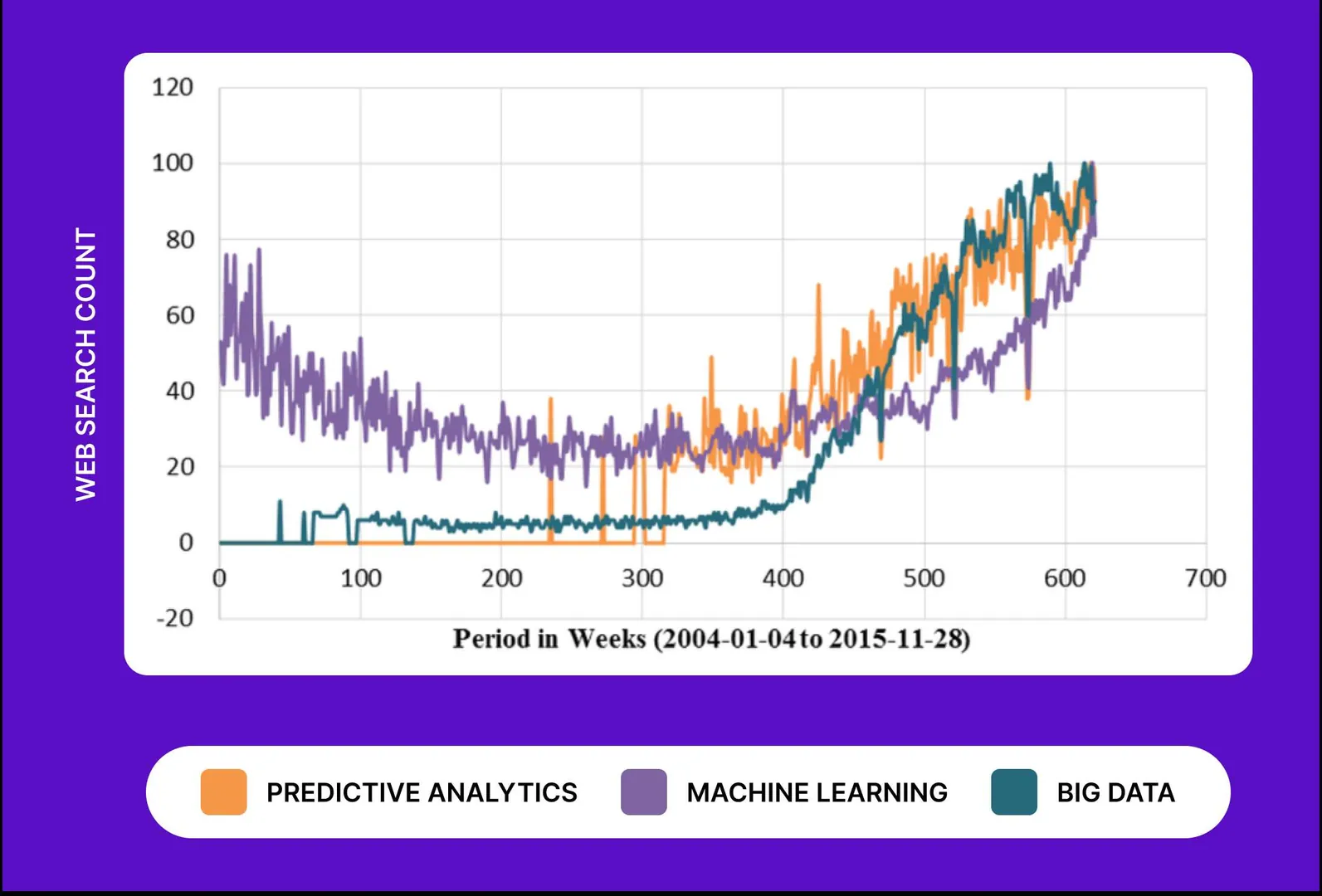
3) Chatbots and Virtual Assistants
AI chatbots and virtual assistants are changing how businesses handle customer service and communication. The power of AI in digital marketing is evident as these tools provide instant, 24/7 support, answering queries, assisting with purchases, and even troubleshooting issues. By integrating natural language processing (NLP), chatbots can understand and respond to customer inquiries in a human-like manner. This not only makes customers happier but also lets human agents focus on more complicated issues. Companies like Sephora and H&M use chatbots to help customers find products and provide personalized recommendations, enhancing the overall shopping experience.
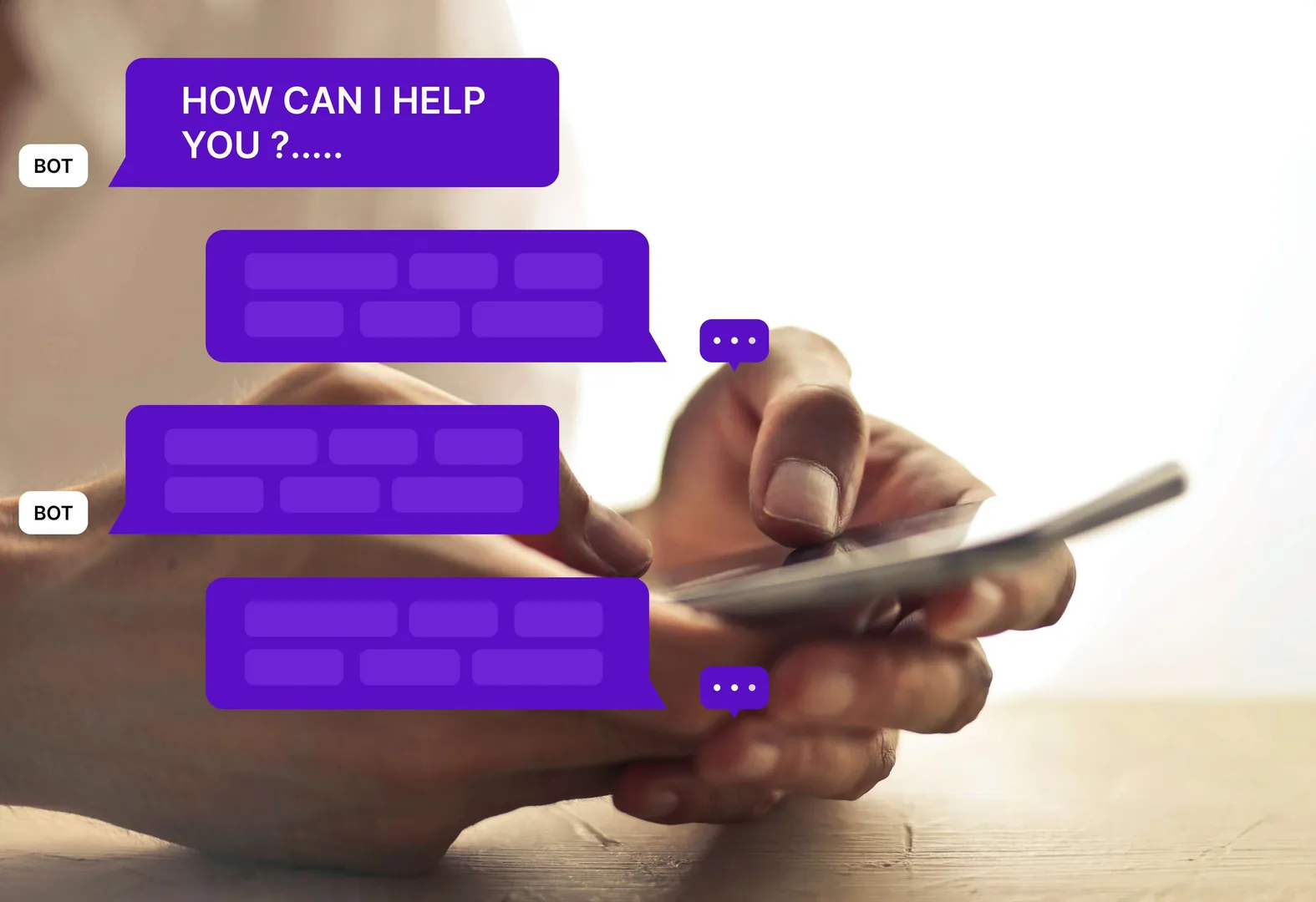
4) Voice Search Optimization
As voice-activated devices like smart speakers become increasingly popular, optimizing for voice search is becoming essential for digital marketers. AI-driven voice search optimization involves tailoring content to match the conversational tone and natural language people use when speaking. This includes focusing on long-tail keywords and answering specific questions. For example, instead of targeting the keyword “best marketing website,” businesses might optimize for “What is the best marketing website for blogs?” Ensuring that content is voice search-friendly helps businesses capture a growing segment of users who prefer hands-free, voice-activated interactions.

5) AI in Content Creation
AI is playing a significant role in content creation, helping marketers generate high-quality content more efficiently. Tools like GPT-4, developed by OpenAI, can produce written content, such as blog posts, social media updates and product descriptions, with minimal human intervention. AI can also curate content by analyzing user preferences and suggesting relevant articles, videos or social media posts. This not only saves time but also ensures that the content is highly relevant to the target audience, increasing engagement and driving traffic to websites.
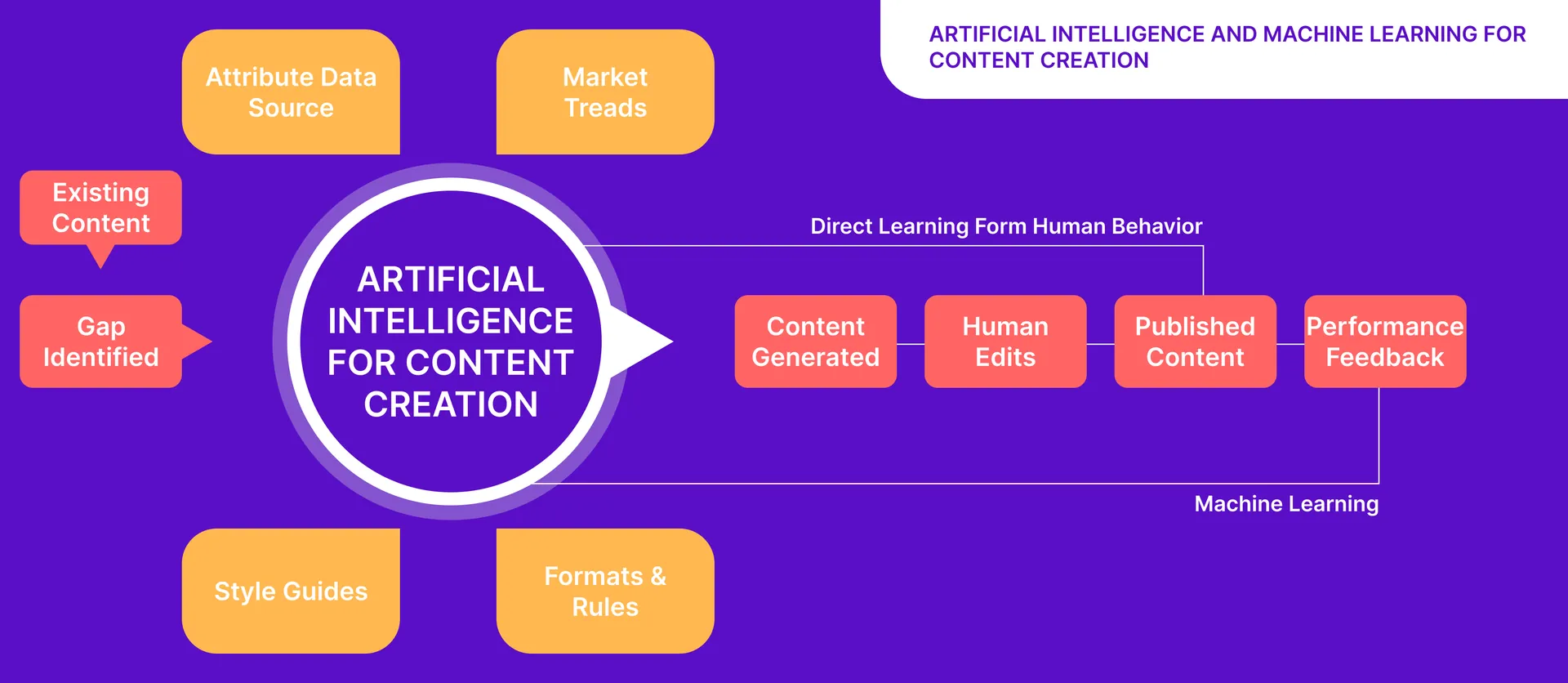
By using these AI trends, businesses can boost their marketing efforts, create better customer experiences and get improved results in a competitive market.
Strategies for Implementing AI in Digital Marketing
Artificial Intelligence (AI) has become an essential tool for businesses to stay ahead of the competition. The power of AI in digital marketing lies in its ability to process vast amounts of data, learn from it, and make predictions. AI can help you optimize your digital marketing strategies and improve your bottom line. Here are some effective strategies for implementing AI in digital marketing:
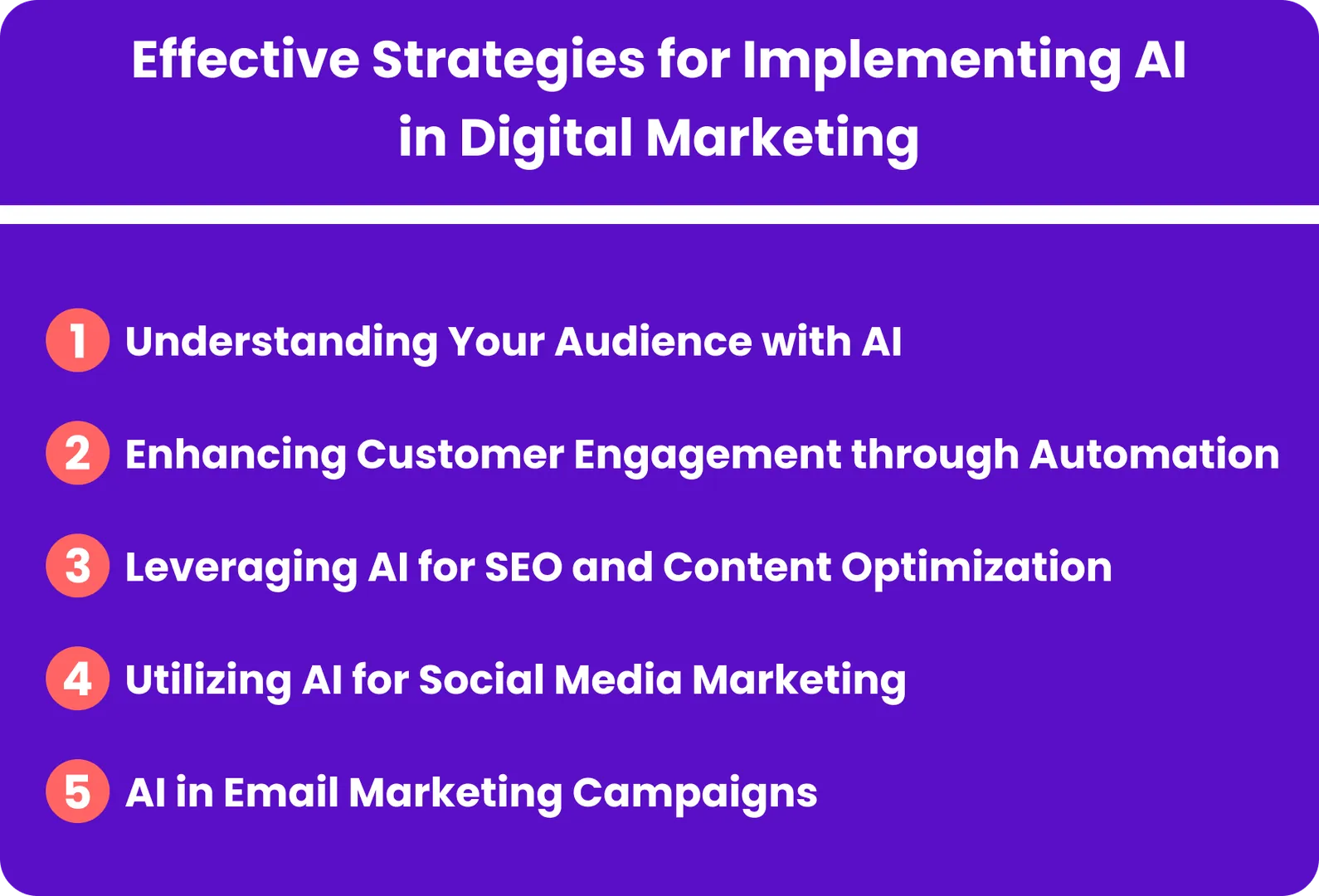
1) Understanding Your Audience with AI
Knowing who your target audience is really important for making successful marketing campaigns. AI can help you better understand your audience by analyzing their behavior, preferences and demographics. By leveraging machine learning algorithms, AI can analyze large amounts of data to identify patterns and trends, allowing you to create targeted campaigns that resonate with your audience.
For example, you can use AI-powered tools to analyze customer data from social media, email and other channels to create buyer personas. This information can then be used to create targeted content and messaging that speaks directly to your audience’s needs and interests.
2) Enhancing Customer Engagement through Automation
Customer engagement is critical for building brand loyalty and driving conversions. AI can help you automate customer engagement by personalizing interactions, predicting customer behavior and identifying areas where customers need assistance. By automating routine tasks such as email follow-ups and chatbot responses, you can free up more time to focus on high-value tasks such as strategy development and relationship-building.
For example, you can use AI-powered chatbots to provide 24/7 customer support, or use email automation tools to send targeted promotions and offers based on customer behavior.
3) Leveraging AI for SEO and Content Optimization
Search Engine Optimization (SEO) is essential for any digital marketing strategy. AI can help you optimize your website’s content for search engines by analyzing keywords, sentiment analysis, and user behavior. By leveraging machine learning algorithms, AI can identify areas where your content is not performing well and provide recommendations for improvement.
For example, you can use AI-powered SEO tools to analyze your website’s meta tags, headings, and content to identify areas for improvement. You can also use AI-powered content optimization tools to generate high-quality content that resonates with your audience.
4) Utilizing AI for Social Media Marketing
Social media marketing is a key channel for reaching your target audience. The power of AI in digital marketing can help you optimize your social media campaigns by analyzing user behavior, identifying trends and providing insights on what works best. By leveraging machine learning algorithms, AI can help you predict what types of content will resonate with your audience and when to post it.
For example, you can use AI-powered social media scheduling tools to optimize your posting schedule based on user engagement patterns. You can also use AI-powered analytics tools to track campaign performance and identify areas for improvement.
5) AI in Email Marketing Campaigns
Email marketing is a powerful channel for generating leads and driving conversions. AI can help you optimize your email campaigns by analyzing open rates, click-through rates and conversion rates. By leveraging machine learning algorithms, AI can help you predict which subject lines work best, which CTAs drive the most conversions and which segments of your list are most engaged.
For example, you can use AI-powered email optimization tools to analyze subject lines and recommend the most effective ones. You can also use AI-powered segmentation tools to create targeted email campaigns based on user behavior and preferences.
By implementing these strategies for using AI in digital marketing, you can improve the effectiveness of your campaigns, increase customer engagement and drive more conversions.
The Role of AI in Shaping Marketing Trends
1) Deep Data Analysis
AI enhances the ability to analyze large volumes of data quickly and accurately. This provides marketers with valuable insights into consumer behavior, preferences and emerging trends that might not be visible through traditional methods.
2) Predictive Analytics
AI-driven predictive analytics uses historical data and advanced algorithms to forecast future trends and customer behaviors. This helps businesses anticipate changes in the market and tailor their marketing strategies to stay ahead of the competition.
3) Content Creation and Optimization
AI tools assist in automating and optimizing content creation. They can generate personalized content, manage social media interactions, and create dynamic ad campaigns that adapt in real-time based on user engagement, enhancing overall marketing effectiveness.
4) Trend Identification
AI identifies emerging patterns and trends by analyzing vast datasets. This allows marketers to spot new opportunities and adjust their strategies to capitalize on the latest market developments.
5) Enhanced Customer Engagement
AI-driven solutions improve customer engagement by providing personalized experiences. Chatbots, virtual assistants and targeted recommendations ensure that interactions are relevant and timely, increasing overall customer satisfaction.
6) Real-Time Adaption
AI enables real-time adaptation of marketing campaigns. By analyzing user interactions and feedback, AI can make instant adjustments to campaigns, ensuring that they remain effective and engaging.
Conclusion
Looking ahead to 2024, it’s clear that the power of AI in digital marketing is changing the industry in big ways. Using AI technologies, businesses can understand their customers better, predict what might happen in the market and create marketing plans that are more personal and effective. AI tools like data analysis and chatbots are making it easier to connect with customers and improve marketing efforts.
AI helps businesses adapt quickly, optimize their content and spot new trends, which keeps them competitive. As AI keeps advancing, it will bring new chances for innovation and efficiency, making it a key part of modern marketing.
To succeed in this fast-paced world, companies need to stay updated on AI trends and be ready to use new strategies that take advantage of these powerful tools. By doing this, they can boost their marketing, grow their business and succeed in the digital age. The future of digital marketing is all about AI and those who use it will be ahead of the game.